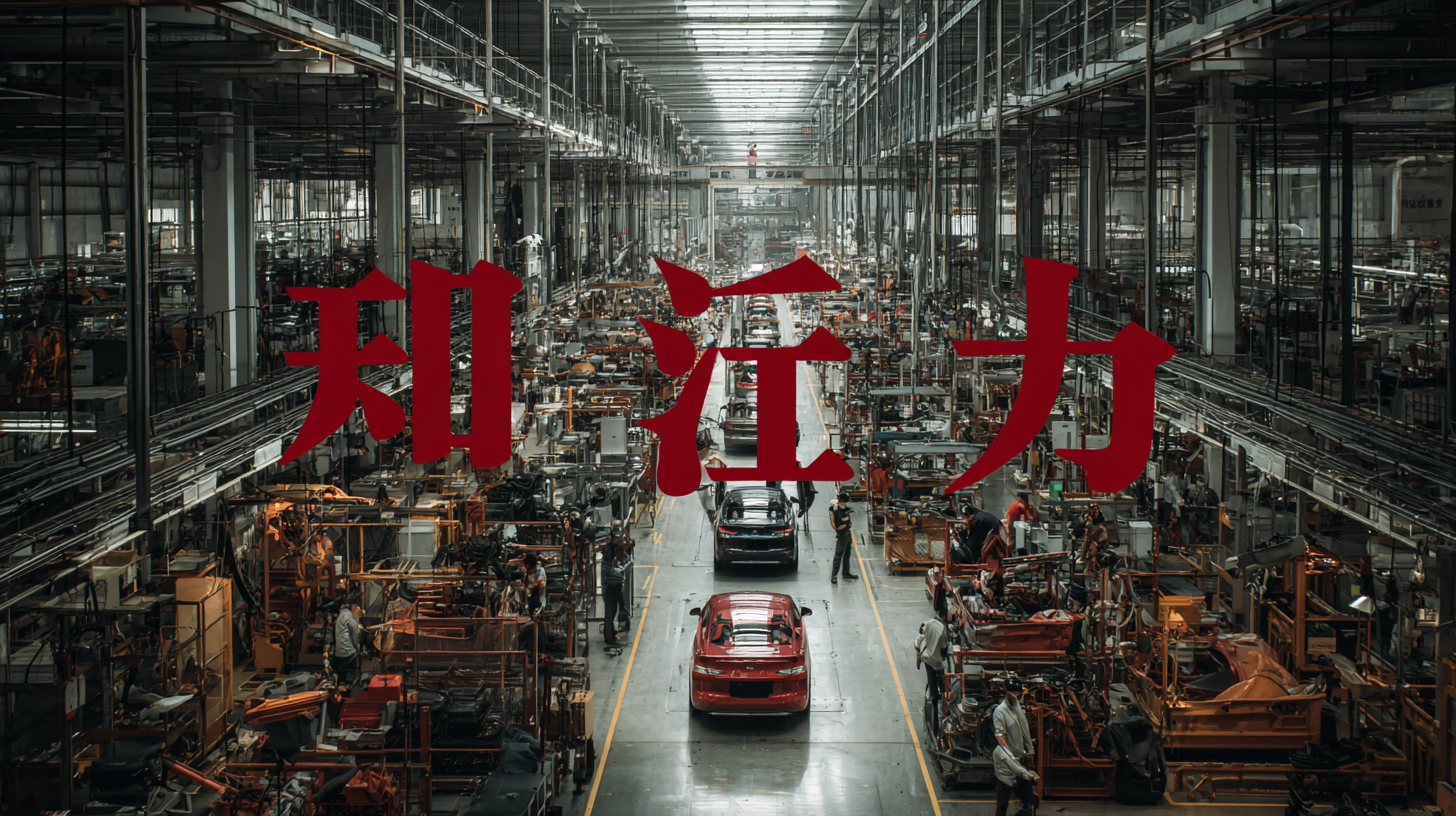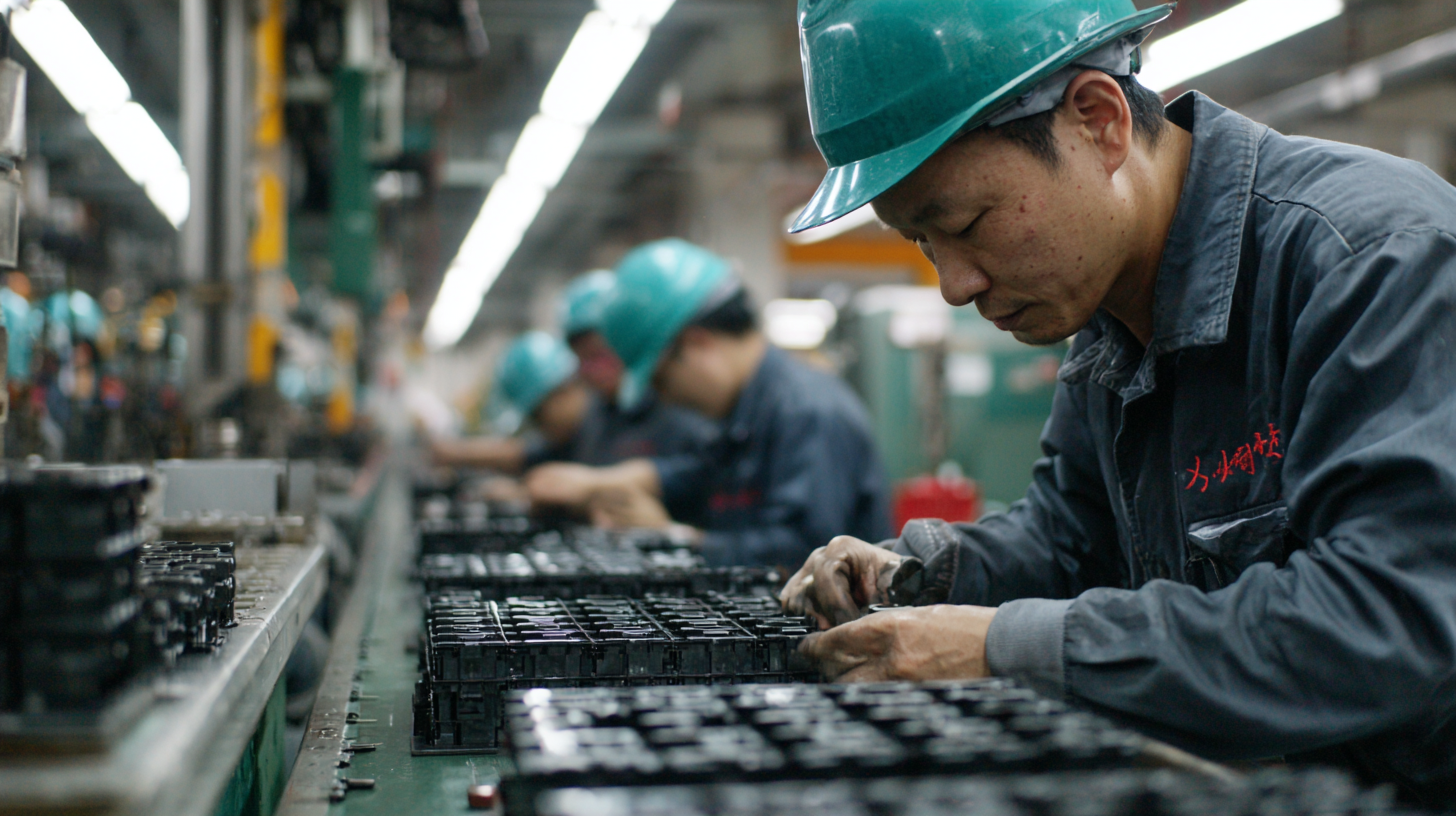
Unveiling the Excellence of Chinese Manufacturing for Global Buyers
In recent years, China has solidified its status as the world's manufacturing powerhouse, producing over 28% of global goods, according to the United Nations Industrial Development Organization (UNIDO). This pivotal role underscores the country’s capacity for innovation, efficiency, and scalability, making it an attractive destination for global buyers seeking quality and competitive pricing. The "Made in China 2025" initiative aims not only to enhance domestic manufacturing capabilities but also to position China as a leader in cutting-edge technologies such as robotics and artificial intelligence. As global supply chains become increasingly interconnected, the excellence of Chinese manufacturing presents significant opportunities for international businesses looking to leverage the cost advantages and high production standards that China offers. In this blog, we will explore the future of Chinese manufacturing, delving into trends, challenges, and the implications for global buyers.

The Growth Trajectory of Chinese Manufacturing: Trends Leading to 2025
The growth trajectory of Chinese manufacturing is witnessing a transformative phase, driven by technological advancements and a strategic shift toward sustainability. As global buyers increasingly seek high-quality products that meet eco-friendly standards, Chinese manufacturers are responding with innovations in production processes. The adoption of automation and smart manufacturing technologies is not only enhancing efficiency but also improving quality control, enabling manufacturers to compete effectively in the international market.
Moreover, China is actively investing in research and development to bolster its manufacturing capabilities. The push towards integrating artificial intelligence and big data analytics is set to revolutionize the industry, allowing for more precise forecasting and inventory management. As these trends unfold, Chinese manufacturers are positioning themselves to meet the dynamic demands of global buyers, ensuring a more resilient supply chain that is adaptable to changing market conditions. By 2025, we can expect Chinese manufacturing to not only consolidate its position as a global leader but also to play a pivotal role in shaping the future of manufacturing worldwide.
Unveiling the Excellence of Chinese Manufacturing: Growth Trajectory to 2025
Key Industries Driving Chinese Manufacturing Excellence and Global Demand
Chinese manufacturing is currently experiencing a remarkable transformation driven by key industries that are not only strengthening domestic capabilities but also catering to increasing global demand. The pharmaceutical equipment sector, for instance, is showcasing significant innovation and adaptability, positioning China as a leader in supporting global health initiatives. This industry is rapidly expanding its technological prowess, meeting high standards demanded by international markets, which emphasizes the shift from merely "Made in China" to "Innovated in China."
Moreover, events like the upcoming CHINAPLAS 2024 are pivotal in shaping the future of the plastics and rubber industries. Such platforms highlight breakthrough technologies and the latest market trends, further accelerating China's role in global supply chains. Industry stakeholders are leveraging these opportunities to collaborate and enhance operational excellence, reflecting a strategic focus on sustainability and efficiency. As China continues to evolve within these key sectors, it remains an attractive destination for global buyers seeking reliable and innovative manufacturing solutions.

Strategic Solutions for Enhancing Supply Chain Efficiency in Chinese Manufacturing
In an increasingly competitive global market, efficiency in supply chains is crucial for maximizing productivity and reducing costs. Chinese manufacturing, renowned for its scale and innovation, offers strategic solutions that enhance supply chain efficiency. According to a report by McKinsey & Company, companies that leverage advanced manufacturing processes in China can reduce lead times by up to 30%, thanks to streamlined operations and technology integration.
Moreover, China's investment in smart manufacturing technologies, like IoT and AI, significantly boosts supply chain performance. A study by the China Federation of Logistics & Purchasing found that 78% of manufacturers implementing IoT technologies experienced a 20% improvement in inventory accuracy. By embracing these advancements, global buyers can not only mitigate risks associated with sourcing but can also capitalize on China's robust infrastructure to achieve just-in-time inventory, ensuring they meet consumer demands without overstocking.
Furthermore, collaboration with local partners can enhance visibility and agility within the supply chain. Research by Deloitte indicates that 62% of businesses engaged in strategic partnerships with Chinese manufacturers are better positioned to respond to market changes swiftly. This reinforces the importance of forming synergistic relationships to navigate the complexities of modern supply chains, ultimately leading to improved operational efficiencies and a stronger competitive edge in the global marketplace.
Unveiling the Excellence of Chinese Manufacturing for Global Buyers
| Product Category | Monthly Production Volume | Average Lead Time (Days) | Quality Rating (1-10) | Export Growth Rate (%) |
|---|---|---|---|---|
| Electronics | 500,000 Units | 30 | 9 | 15 |
| Textiles | 1,200,000 Units | 25 | 8 | 20 |
| Automobiles | 300,000 Units | 45 | 9 | 12 |
| Machinery | 150,000 Units | 60 | 7 | 10 |
| Consumer Goods | 850,000 Units | 35 | 9 | 18 |
Technological Innovations Reshaping the Future of Chinese Manufacturing
Technological innovations are at the forefront of reshaping the future of Chinese manufacturing, a sector that has witnessed rapid advancements in recent years. According to a report by McKinsey, China's manufacturing productivity has increased by over 20% since 2010, attributed largely to the integration of automation and artificial intelligence into production processes. As global buyers seek efficiency and quality, the adoption of smart manufacturing technologies has positioned China as a competitive player in the global market.

One of the most significant trends in Chinese manufacturing is the rise of Industry 4.0, which emphasizes the use of the Internet of Things (IoT) and big data to optimize manufacturing operations. A study by Deloitte indicates that companies implementing IoT solutions in their factories report a productivity increase of up to 30%. By leveraging these technological innovations, Chinese manufacturers can not only enhance their operational efficiency but also improve product quality, ultimately benefiting international buyers.
Tip: When considering partnerships with Chinese manufacturers, evaluate their technological capabilities and readiness to adopt innovative solutions. This can greatly impact the quality and efficiency of supply chains. Additionally, staying informed about emerging trends in the industry can help buyers make strategic decisions that align with their long-term goals.
Sustainability Initiatives and Their Impact on Chinese Manufacturing Practices
Sustainability has become a focal point in the global manufacturing landscape, and China is no exception to this trend. As the world's manufacturing hub, Chinese companies are increasingly adopting sustainable practices to reduce their environmental impact and meet the growing demands of international buyers for responsible sourcing. Initiatives such as waste reduction, energy-efficient production processes, and the use of renewable resources are now integral components of many factories' operational strategies. These changes not only contribute to a healthier planet but also enhance the global competitiveness of Chinese manufacturers.
Moreover, the shift towards sustainability is prompting innovation within the Chinese manufacturing sector. Many businesses are investing in advanced technologies, such as automation and smart manufacturing, which not only optimize resource usage but also improve product quality and reduce production costs. This transformation aligns with the global shift towards circular economy principles, where resources are reused and recycled, minimizing waste. As Chinese manufacturers embrace sustainability, they not only comply with international standards but also position themselves as leaders in the evolving global marketplace, appealing to environmentally conscious consumers and partners alike.
